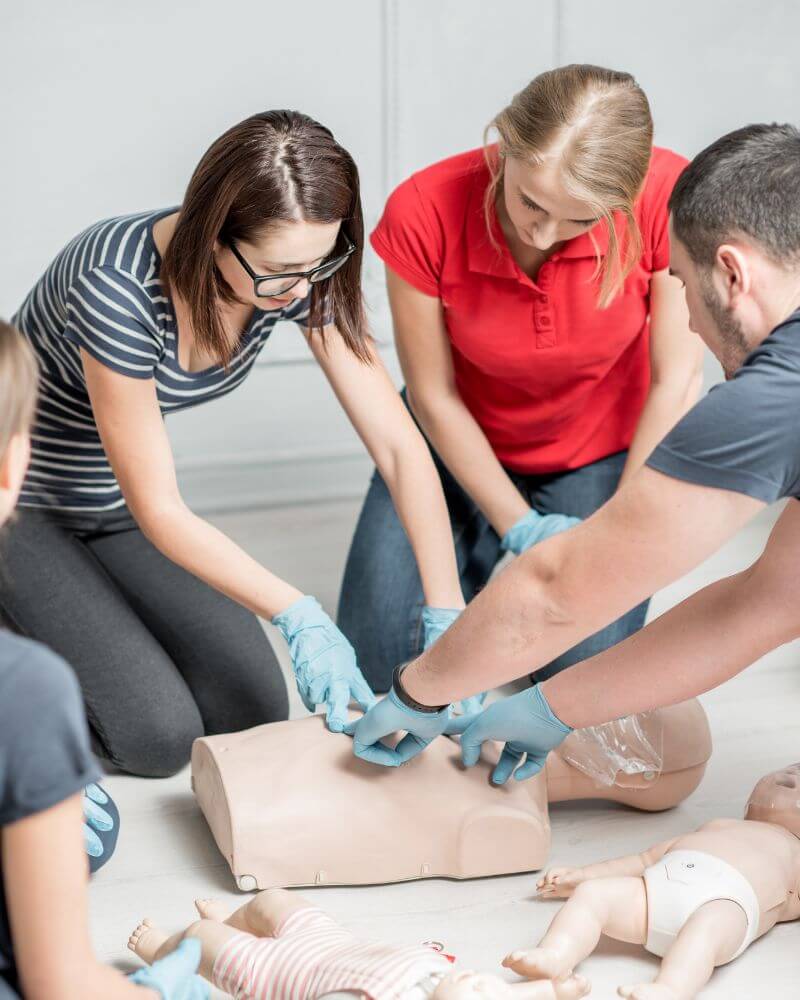Introduction
In today's hectic workplace, security is extremely important. Organizations are increasingly identifying the significance of developing a safe area for employees. One of one of the most crucial parts of office security training is initial aid and mouth-to-mouth resuscitation (Cardiopulmonary Resuscitation) training courses. These training courses not just equip staff members with important life-saving skills however also cultivate a society of security within the company. In this write-up, we will certainly delve into the myriad reasons workplace safety training ought to include emergency treatment and mouth-to-mouth resuscitation programs, highlighting their significance in improving workplace safety.
Why Work environment Safety and security Training Must Include First Aid and CPR Courses
The assimilation of emergency treatment and CPR programs right into workplace security training has far-ranging benefits. They furnish workers with the expertise and skills required to react successfully to clinical emergencies, decrease recuperation time for damaged people, and possibly conserve lives. Moreover, having trained workers on-site can infuse self-confidence amongst staff members and guarantee them that their well-being is prioritized.
Understanding Very first Aid
First aid describes the instant treatment offered to a specific suffering from a minor or severe illness or injury until expert clinical assistance shows up. Recognizing standard emergency treatment concepts can make a significant distinction in emergency situations.
Key Elements of First Aid
Assessment: The capability to examine a circumstance swiftly can help identify the ideal actions needed. Stabilization: Comprehending how to maintain a wounded individual prevents more harm. Communication: Successfully interacting with emergency services is essential for timely assistance.The Significance of CPR
CPR is a life-saving method utilized in emergency situations when someone's heart beat or breathing has quit. It entails chest compressions and rescue breaths to keep blood flow and oxygenation till professional help arrives.

How CPR Works
- Chest Compressions: These help flow blood throughout the body. Rescue Breaths: These provide oxygen to the lungs.
Benefits of First Aid and Mouth-to-mouth Resuscitation Certification
Obtaining a first aid certification or completing mouth-to-mouth resuscitation programs comes with numerous benefits, both for people and organizations.
Enhanced Employee Confidence: Workers feel more secure knowing they have life-saving skills. Reduced Recuperation Time: Quick response via emergency treatment can result in better end results for hurt individuals. Compliance with Regulations: Many markets require certified workers as part of their health and wellness regulations.Creating a Culture of Safety And Security Via Training
Implementing emergency treatment and CPR training cultivates a culture that prioritizes staff member wellness.
Encouraging Teamwork
Training sessions typically include team-building workouts that enhance cooperation among employees.
Building Depend on Between Staff members and Management
When administration buys staff member training, it reveals commitment to their health, resulting in increased morale.
First Help Gushes vs. CPR Courses: What's the Difference?
While both kinds of courses are important, they focus on various skill sets.
First Help Courses
These courses cover a wide range of topics beyond simply heart emergencies, consisting of:
- Wound care Burns Choking
CPR Courses
CPR training courses particularly concentrate on methods connected to cardiac arrest circumstances, highlighting:

- Adult CPR Child/ infant resuscitation Use of an Automated External Defibrillator (AED)
Choosing the Right Training Provider
Not all training providers are produced equal; for that reason, choosing one that fulfills your organization's requirements is critical.
Accreditation Matters
Ensure that your selected provider uses approved courses recognized by relevant authorities.
Instructor Experience
Consider instructors' credentials; seasoned trainers often provide richer learning experiences through real-world examples.
Incorporating Emergency treatment into Office Security Policies
Organizations need to incorporate first aid needs right into their broader security policies for thorough coverage.
Regular Training Updates
Conducting normal refresher courses makes sure that understanding remains present among employees.
Creating Emergency situation Reaction Plans
Having clear strategies in place can assist skilled workers during emergencies.
Legal Effects of First Aid Training in the Workplace
Employers have legal obligations concerning work environment safety and security; executing first aid training can aid reduce dangers connected with non-compliance.
Negligence Claims
Failure to give adequate training may leave employers vulnerable to suits if an occurrence occurs because Extra resources of absence of preparedness.
FAQ Section
What is included in a typical first aid course?- A normal emergency treatment course consists of guideline on analyzing injuries, dealing with injuries, managing burns, dealing with choking cases, and doing mouth-to-mouth resuscitation if necessary.
- Most mouth-to-mouth resuscitation programs last in between 4-- 6 hours depending upon whether it's basic or sophisticated training.
- While not always lawfully mandated, having actually certified employee can dramatically boost office safety standards.
- Many certified organizations use on the internet renewal options for first aid certifications which include assessments using video clip conferencing.
- Yes, industries such as construction, health care, education and learning, and production typically have regulatory demands necessitating skilled employees on site.
- It's recommended that staff members participate in correspondence course every two years or quicker if there are considerable changes in procedures or regulations.
Conclusion
To sum up, incorporating emergency treatment and CPR right into work environment security training is not just a choice however a necessity in today's workplace where emergencies can arise at any moment. Organizations benefit greatly from having trained employees prepared to respond successfully during situations while fostering an atmosphere where employee wellness takes precedence over all else. For that reason, it comes to be obvious why work environment security training need to include emergency treatment and CPR courses-- they conserve lives while promoting a positive strategy towards health and safety standards within organizations across different sectors.
By focusing on such essential training campaigns-- emergency treatment certificates obtained through respectable service providers along with useful hands-on experience-- firms can dramatically enhance their overall emergency preparedness levels while also constructing more powerful groups with the ability of taking on any scenario head-on!
